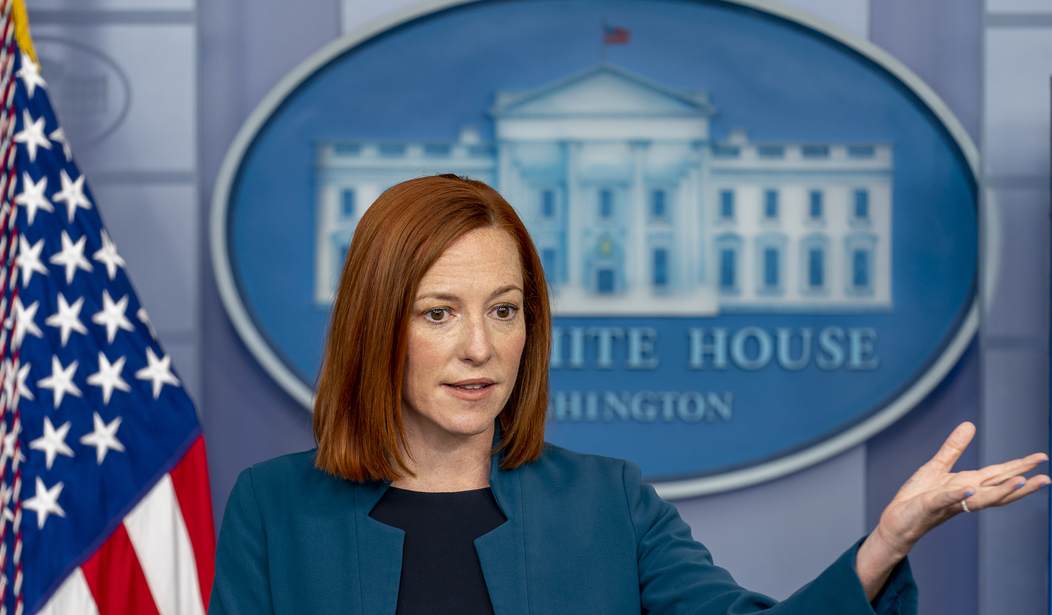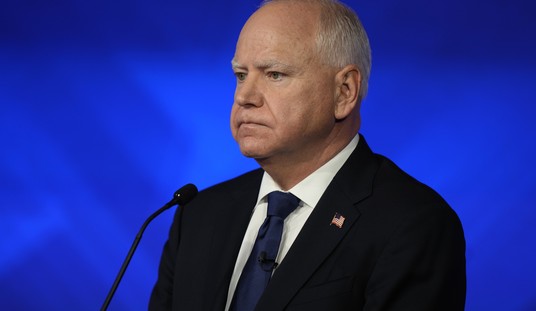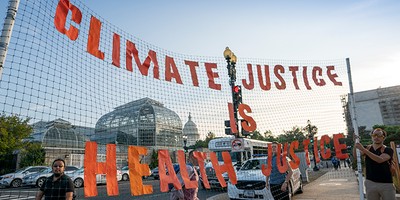Speaking to reporters at the White House Tuesday, Press Secretary Jen Psaki was asked about whether President Biden is prepared for utility companies to raise prices as a result of a federal tax increase. Here is the exchange:
Q On the President's tax plans, he has said that individuals, households under $400,000 per year aren't going to see their taxes go up. Does that also apply to indirect effects from the corporate tax changes that might not technically be tax increases? Look, if an average family of four, making under that amount, sees their heating bill go up because utility companies increased their rates to accommodate the 28 percent corporate tax rate, is that okay or acceptable to the President, you know, because it's not technically a tax increase?
MS. PSAKI: Well, I would say that there's no reason that that is what needs to happen. We saw -- we have evidence of what happens. Back in 2017, when Republicans prioritized tax cuts for big corporations over investing in working people, there were many arguments made about what the impact would be: the benefits would be passed on to consumers, they would invest in R&D, there would be jobs created.
None of that happened. There were stock -- stock buybacks, more incentives to offshore, record compensation for executives. We have seen countless studies where the biggest impacts to these corporations would likely be on capital.
So I would say that's not a concern we have at this moment in time.
Q But even though -- I mean, utility companies did -- maybe it's, arguably, partially for show, but they did announce, you know, rate decreases after the 27 [2017] tax law passed, and attributed it to the tax law passing. You know --
MS. PSAKI: Is there some data that you're expecting from economists, suggesting that will be the case? Or are you just getting ahead of what might happen when the bill passes?
Q I mean, I'm just getting ahead of that. Like, there were those announcements. You said, like, they didn't have the intended effects, but utility companies did say, "Hey, our -- you know, we can pass on this lower rate to consumers through their utility bills." And it's --
MS. PSAKI: And have utility companies said -- I have not seen it if they have -- that they would raise the cost, if this bill passed, to invest in infrastructure and get lead out of the pipes to make sure there's clean drinking water and create millions of jobs?
Q I'm not aware of any specific announcements like that. But I'm just saying that was the -- one of the results that occurred after the 2017 law passed.
MS. PSAKI: Well, then I don't think we have to anticipate it as an issue quite yet.
Recommended
But while the White House denies utility price increases are inevitable, history proves otherwise. Americans for Tax Reform is calling Psaki's response a "deep denial" of reality.
"Following enactment of TCJA, utility companies across the country worked with state utility commissions to pass along corporate tax rate savings to customers. Americans for Tax Reform has documented over 140 examples. And here is a compilation of national and local television news coverage of same. The burden of corporate taxes is borne by utility customers, a fact that White House press secretary Jen Psaki seemed to deny today during the press briefing," ATR says.
"It is uncomfortable for the White House and Democrats to acknowledge that a corporate tax rate hike will be borne by households and small businesses that typically operate on tight margins and have considerable heating, cooling, gas, and refrigeration costs. Just as Americans are digging out from the pandemic, Biden and the Democrats are there to whack them with higher costs," they continue.
Meanwhile, the Biden administration is still looking for ways to pay for President Biden's $2.5 trillion spending bill and the middle class is in the crosshairs.
Biden’s proposal to raise the gas tax would not only be a clear violation of his promise but would disproportionately place the burden of the tax increase on lower-income Americans who pay a larger portion of their income on gasoline. https://t.co/UdiH1c9xGC
— ATR (@taxreformer) April 14, 2021

























Join the conversation as a VIP Member